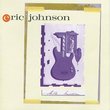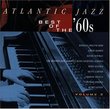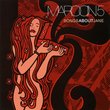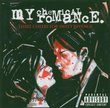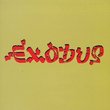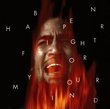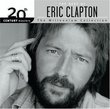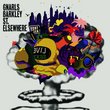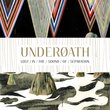| All Artists: Bobby Hutcherson Title: Dialogue Members Wishing: 4 Total Copies: 0 Label: Blue Note Records Release Date: 1/29/2002 Album Type: Original recording remastered Genres: Jazz, Pop Styles: Modern Postbebop, Bebop Number of Discs: 1 SwapaCD Credits: 1 UPC: 724353558628 |
Search - Bobby Hutcherson :: Dialogue
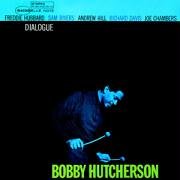 | Bobby Hutcherson Dialogue Genres: Jazz, Pop
Today Bobby Hutcherson is one of the established giants of mainstream modern jazz. But in 1965, He was on the cutting edge of experimentation, working with Jackie McLean, Eric Dolphy, Andrew Hill and Archie Shepp. The pers... more » |
Larger Image |
CD DetailsSynopsis
Album Description Today Bobby Hutcherson is one of the established giants of mainstream modern jazz. But in 1965, He was on the cutting edge of experimentation, working with Jackie McLean, Eric Dolphy, Andrew Hill and Archie Shepp. The personnel on Dialogue, his first album as a leader to be released, reads like a who's who of the creative front in jazz at the time: trumpeter Freddie Hubbarrd, reedman Sam Rivers, pianist/composer Andrew Hill, bassist Richard Davis and drummer/composer Joe Chambers. Rudy Van Gelder's vivid recording style captures all nuances of this amazing album. Added to the original LP is Andrew Hill's "Jasper" from the session. Produced by Alfred Lion. Recording engineer: Rudy Van Gelder. Recorded at the Van Gelder Studio, Englewood Cliffs, New Jersey on April 3, 1965. Remastered in 2001 by Rudy Van Gelder. All transfers from the analog tapes to digital were made at 24-bit resolution. The Players: Bobby Hutcherson: Vibes & Marimba Freddie Hubbard: Trumpet Sam Rivers: Tenor Sax, Soprano Sax, Bass Clarinet & Flute Andrew Hill: Piano Richard Davis: Bass Joe Chambers: Drums. Similarly Requested CDs
|
CD ReviewsHutcherson's best G B | Connecticut | 02/09/2002 (5 out of 5 stars) "This CD, long out of print, is among the best avant-garde CDs put out by Blue Note records in the mid-60s -- right up there with Eric Dolphy's Out to Lunch and Andrew Hill's Point of Departure. All 3 albums have the same exploratory, progressive attitude without forsaking swing or the blues. Things kick off with the demented mambo "Catta". Composer Andrew Hill splashes dissonant piano chords over the dance rhythms, Sam Rivers blows fiery lines on the tenor sax, Freddie Hubbard shows off his avant-garde trumpet credentials, and then Bobby Hutcherson provides his spacy, cerebral vibraphone musings. Hill gets the same twisted, off-kilter feel on the blues "Ghetto Lights". "Idle While" is an eerie Joe Chambers ballad. The two collective improvisations "Les Noirs Marchent" (set to a marching rhythm) and "Dialogue" are among the finest of their kind -- instead of getting into a blowing cacophony, all six musicians listen carefully to each other and the music has a natural ebb and flow. Bassist Richard Davis's playing holds the enterprise together, stretching and contracting as the music demand. Dialogue is an essential listen for most fans of adventurous 60s jazz. If you like Dialogue, there are other Blue Note albums that should tickle your fancy: Out to Lunch (with Hutcherson, Davis, and Hubbard), Point of Departure (with Hill and Davis), Jackie McLean's Let Freedom Ring, and Tony Williams's Life Time (with Rivers, Davis and Hutcherson). Be sure to pick up Hutcherson's Components (with Chambers and Hubbard) and Stick-Up as well." Essential Reissue Thomas Aikin | San Diego, CA | 02/01/2002 (5 out of 5 stars) "With much of Bobby Hutcherson's transient Blue Note catalog slowly becoming scarce the reissue of perhaps his best session as part of the Rudy Van Gelder series is most welcome. The lineup features a virtual who's-who of 1960s Blue Note post bop sessionmen. Freddie Hubbard (trumpet), Sam Rivers (tenor sax, various), Hutcherson (vibes & marimba), Andrew Hill (piano), Richard Davis (bass), Joe Chambers (drums) effortlessly transition from straightahead bop sound into very "free" territory. Some express concern that "Dialogue" is on the adventerous side, but I find most of it to be very palatable. I'm only more impressed by how seamlessly the session comes together even with its more adventerous passages. The compositions on the album are split between Hill and Chambers and are extraodinary. The sound is probably the biggest selling point for this disc. The entire RVG series is spoken of with awe for how closely the CD's sound to the original vinyl, and "Dialogue" continues that trend. The sound is warm with great physical spacing between the instruments. "Dialogue" instantly becomes the point of entry for acquainting oneself with Bobby Hutcherson's Blue Note work. Many thanks to the label for making it available again." Hutcherson's first N. Dorward | Toronto, ON Canada | 12/07/2002 (3 out of 5 stars) "I've always been a little puzzled by the reputation of this album, which is regarded with something like awe by Blue Note aficionados. It's of course a landmark in the label's experiment in the 1960s with avantgarde jazz, & is also notable as being Hutcherson's first disc as a leader, & as fielding what's basically the house "avantgarde" team: Hutcherson, Hill, Hubbard, Rivers, Davis, Chambers. Between them these musicians appeared in various combinations on classics of the period such as Dolphy's _Out to Lunch_, Hill's _Point of Departure_ & Moncur's _Evolution_.& yet I find this an album easier to admire than love (unlike those last three discs I named). Part of the problem is that often the musicians are on instruments I don't especially enjoy hearing them on. Sam Rivers is on flute for two tracks, bass clarinet for one (the long title-track); & Hutcherson is using marimba for half the album. "Catta" is the strongest, most distinctive composition here, the creation of Andrew Hill: it's in 8/8 time, with a grinding repetitive piano accompaniment which is actually often rather more absorbing than the solos over top of it (Rivers is in rather middling form here; Hubbard & Hutcherson much better). The dissonantly harmonized waltz "Idle While", the soulful "Ghetto Lights" & the quite straightforward blues "Jasper" (an outtake from the session, for some reason--it could easily have fit on the original LP) are likeable; but I find the two "free" tracks, "Les Noirs Marchant" & "Dialogue", rather tough going. They are interesting for being quite unlike what anyone else what doing in free jazz at that moment, their spacious interplay anticipating European free-improv rather than being at all like the work of Ayler, Coleman & Coltrane. Still, almost 17 solid minutes of this rather fugitive interplay bogs the album down somewhat.A "classic" I suppose, but it's one that seems to me ultimately almost time-locked. Still, with most of Hutcherson's Blue Notes enjoying only brief lives in the catalogue before they disappear, it's certainly worth acquiring. Curious how the careers of these players were so soon to diverge, with Hutcherson & Hubbard never sounding this adventurous again after the 1960s, while Rivers & Hill continued on their stubbornly independent musical paths."
|

 Track Listings (6) - Disc #1
Track Listings (6) - Disc #1